Throughout Hispanic Heritage Month, ACC asks inspiring and accomplished faculty, staff, and students about their culture, traditions, and accomplishments.
Visit ACC’s 2023 Hispanic Heritage Month website for a list of events happening throughout the month and a message board to share your thoughts. Find additional resources, information, and events on the Cultural Mosaic for Hispanic Heritage website.
Enrique Suárez
Enrique Suárez (He/him/his) is a web administrator for the Office of Institutional Research and Analytics who started at ACC in August 2018.
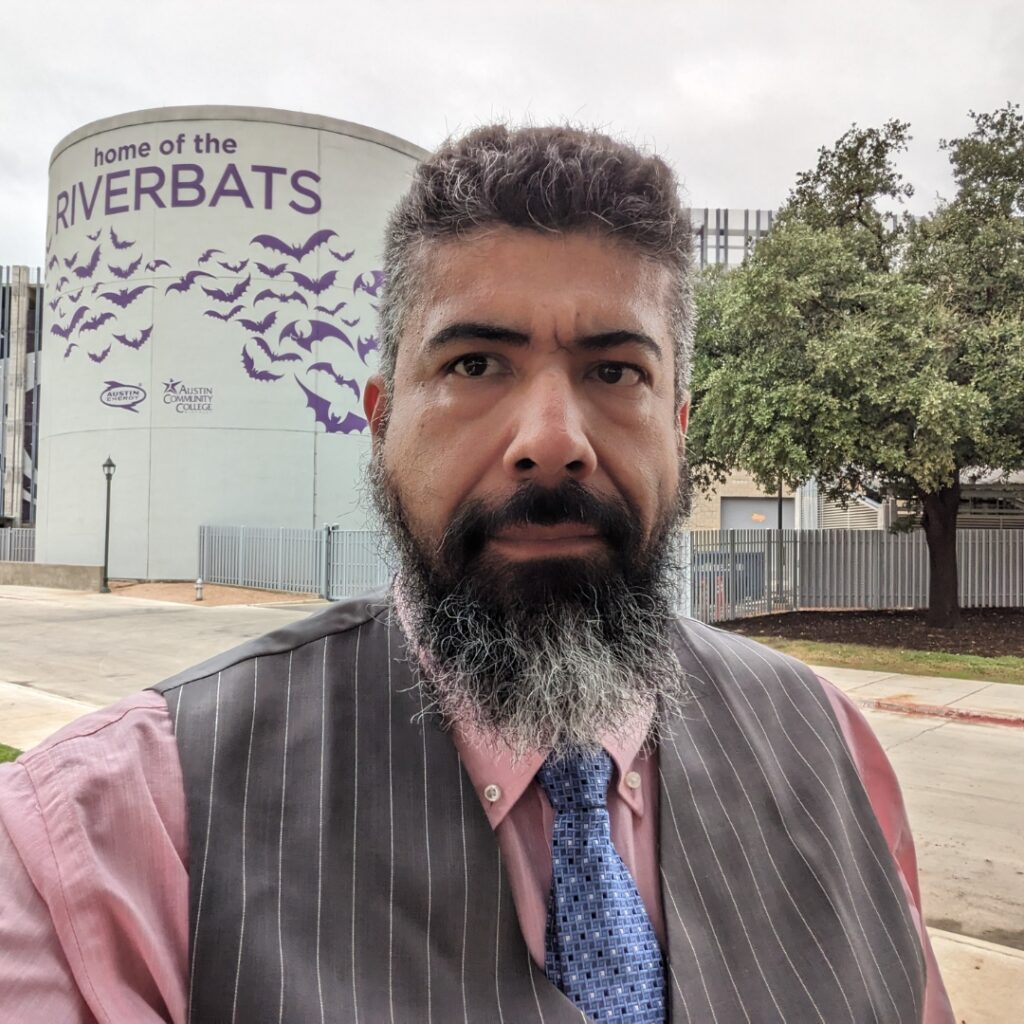
How do you identify with the Hispanic community?
Having grown up in Mexico, I can trace my lineage to the Purépecha region (now Michoacan State in Mexico) during the pre-Hispanic era, as well as to the Principality of Asturias in Northern Spain. We, as Hispanics, inherit a rich heritage from the earliest global community in world history.
What is your favorite way to celebrate your heritage?
Life is an ongoing festivity of moments, and Hispanics have a tendency to infuse it with vibrant hues, warm smiles, and delicious flavors. So, I celebrate admiring art, through friendship, and traditional food.
What advice would you give to our Hispanic/Latinx students?
Never stop learning from others, and you always will have room for improvement, personal and professional.
Who or what is your biggest inspiration?
I’m perplexed by nature — amazed by the mathematical perfection in simple things like a sunrise or the baroque complexity of the fractal iterations in a snowflake structure.
What is your proudest achievement?
Joining a team where I can actively contribute to accomplishing our objectives and where colleagues are always willing to share their knowledge. 100% Riverbat Spirit!
What book, movie, show, etc. do you recommend people check out during Hispanic Heritage Month?
“Like Water for Chocolate” (Como agua para chocolate) is a good Mexican film with a story mixed with traditional flavors!
Dr. Estrella Barrera
Dr. Estrella Barrera (she/her/ella) started working at ACC in 2005 as an adjunct professor in the Occupational Therapy Assistant program. She served as department chair for 10 years before serving as the Associate Dean of Health Sciences in 2020.
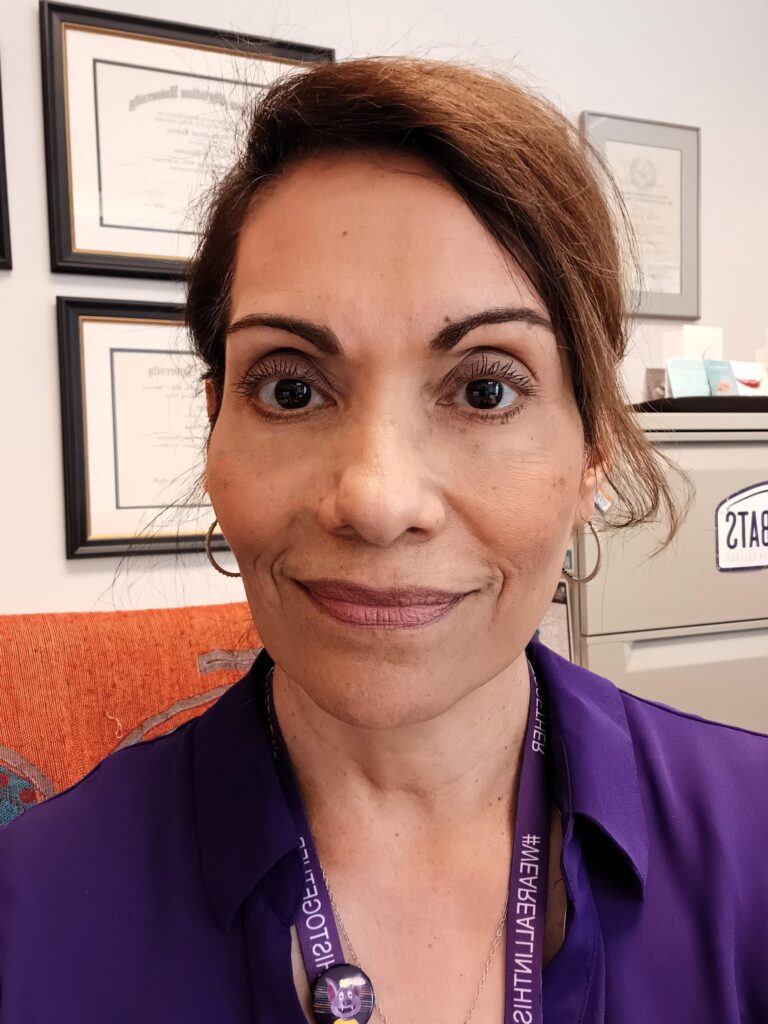
How do you identify with the Hispanic community?
I am a “valley girl” — I was born and raised in the Texas Rio Grande Valley. Living in a border town, my experiences were bicultural and rich in both Mexican and American traditions. It was not uncommon for us to cross the border for lunch or dinner, walk through the Mexican markets, and buy Mexican candy. I remember traveling to San Luis Potosi to visit family. The sounds, smells, and “loud” conversations that happened around the dinner table with lots of laughter are so memorable. I can still hear the laughter of my abuelito, abuelita, tias, tios, and primos (grandfather, grandmother, aunts, uncles, and cousins)! Most importantly, it wouldn’t be a Mexican celebration without mariachi music. A wedding celebration was not complete until the mariachis showed up. Lastly, curanderismo (Mexican traditional medicine) was part of our medicine growing up. I can still hear my tia saying “curenla de el mal de ojo” (cure her from the evil eye)….and the process would ensue. My heart is filled with pride and joy when I think about all the wonderful cultural experiences I had that have informed and shaped my life as an adult.
What is your favorite way to celebrate your heritage?
When I reflect on this question, it’s my abuelita that comes to my mind and heart. I remember going to her house after school and having her homemade flour tortillas, Mexican sweat bread, and Mexican hot chocolate. For me, celebrating my heritage means a house full of family, speaking both English and Spanish — or rather, Spanglish. I celebrate my heritage every day in that Spanglish is how I still communicate with family and friends.
I can’t forget to mention the “tamaladas.” I have countless memories of making tamales with my large extended family. It was always around the Christmas holiday season. We would gather at my tia’s house and everyone had a job. Preparing the masa, cooking the meat, soaking the hojas (leaves), spreading the masa on the hojas, putting the meat on, rolling them, placing them in the large cooking pot…..then we all feasted! I can still taste those tamales! So, for me, celebrating my heritage is centered around family and the sharing of traditional foods.
What advice would you give to our Hispanic/Latinx students?
Embrace your cultural beliefs and traditions. Share them with pride! We all have our story — tell yours!
What do you find fulfilling?
My mother is my biggest inspiration. Against all odds, she was the first one in her large family to go to college. It was far from a conventional path, and she did it. We graduated from undergrad at the same time. We have a beautiful portrait of both of us in our cap and gown. She is my role model. When you put your mind on your goal and work for it, you’ll get there.
What is your proudest achievement?
Earning my doctorate in higher education last year. It was my mama’s voice in my head that kept me working toward that goal.
What do you want others to know or understand about your heritage?
For me, first, we are all humans with lived experiences. As a Mexican-American, my experiences were influenced by the collective experiences of my grandparents and parents. So, regardless of whether one identifies as Hispanic, Latinx, or Mexican-American, we all hold common values while carrying our own distinct life experiences. The beauty lies in exchanging those experiences and perspectives with others, enriching our communities in the process.
Ray P. Sandoval
Ray Sandoval is a full-time professor in ACC’s Student Development (SDEV) Department and a former Liberal Arts Division associate dean who started working at ACC in fall 2001. Sandoval has served in many roles throughout the college, from Financial Aid clerk, Student Life assistant, and Veteran Affairs work study to College Connection specialist, Mobile Go Center specialist, ACC Riverside Campus advisor, Early College Start specialist, Youth Programs coordinator, and Early College High School manager.
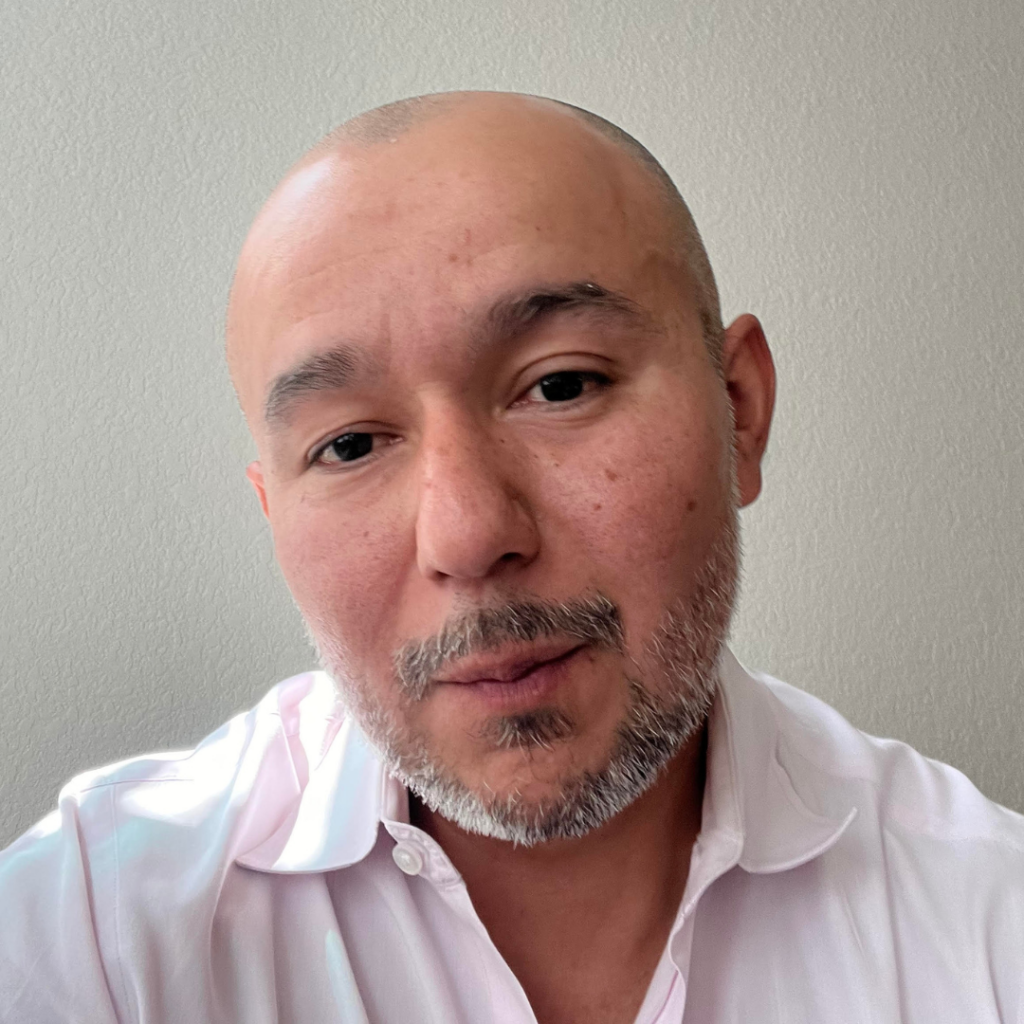
How do you identify with the Hispanic community?
I identify as a Tejano in the Hispanic community. I was born in Texas, my father was born in Texas, my grandfather was born in Texas, my great grandfather was born in Texas, and so was my great-great grandfather. I am a fifth-generation, Texas-born, Tejano!
What is your favorite way to celebrate your heritage?
My favorite way to celebrate my heritage is through dancing and singing. My wife and I (and most of our kids) love to dance to Spanish music and sing to it as well. I must admit, I am not very good at either, but I still love to do it!
What advice would you give to our Hispanic/Latinx students?
Always strive to be the best. When you are the best at something, no one can take that away from you. Regardless of how they might look at you or try to generalize you, when you are the best at something, you are basically telling folks that what you think of me or see me as really doesn’t matter because I am best (punto final/final point, period).
Who or what is your biggest inspiration?
My biggest inspiration is my family. My parents, my wife, and my kids are the most important/inspiring parts of my life. They remind me not to forget where I come from (the past), to focus on the present, and to not lose sight of what is in front of me (the future).
What is your proudest achievement?
From my personal life, my proudest achievement is becoming a dad/father/parent to four boys and one girl. From my professional life, helping ACC become a Hispanic Serving Institution (HSI) in 2011 is my proudest achievement. I believe I did so as a recruiter in ACC’s College Connection Department when I would go out to high schools and communities (many of which had large Hispanic populations) and talk about the importance of going to college and starting off at ACC. I did so as a Youth Programs coordinator when I talked with parents (many were Hispanic) about the importance of their children getting involved in college programming even before getting to high school — which is what I tried to incorporate into ACC’s summer camps for children in elementary and middle school. Also, as an MC for events such as Dia de La Familia and at Latino Symposiums for the college, I spoke to families, communities, and other educators about the importance of Hispanic representation in higher education. Now that we have over 40% Hispanic student enrollment (as of fall 2022) at ACC, we are the majority. Now, I hope that my next professional accomplishment will be helping ACC/us see that Hispanic representation also matched amongst our faculty.
What do you want others to know or understand about your heritage?
From a historical perspective, I want others to understand the mentality of the involuntary immigrant. As a fifth-generation Texan, Tejano, I still wait for the bottom to fall out. I still get the “where are you from, originally” question. When I tell people my name is Ray, I still get, “no, what’s your real name?” I do my best to walk forward with my head up high with pride. But sometimes, that is difficult for me as I keep wanting to look down, mind my business, stay out of trouble, and try not to make others (particularly non-Hispanics) feel “uncomfortable” when I am around them. All this in anticipation of the bottom being pulled out from under me. So what I want for others to understand most about my heritage is the importance to keep moving forward, keep striving to be the best, and always striving to do this with your head held high. Because when you keep your head up and the bottom does fall, it makes it easier to climb out of the hole, pull yourself up, and keep moving forward!
Ana Juan

Meet Ana Juan, a Social Work student who credits Ascender as a major factor in enrolling at ACC. She says her mentor pushed her toward her academic and career goals. The program also allows her to make friends and build community.
“ACC has really made me feel more comfortable in transitioning from being a high school student to a college student with dreams that are being achieved one step at a time,” says Ana.
Ana, who is also a member of the college’s Alpha Gamma Pi and the AMIGOS programs, ACC’s Honor Society chapter and student-led cultural club, respectively, said that ACC has fostered a supportive environment for Hispanic students. She says embracing her heritage is a meaningful experience.
“I celebrate my heritage every day by speaking Spanish and [with] the food I eat every day; from the colorful bracelets I wear from Mexico to the music I listen to with my mom,” says Ana. “It reminds me where my parents come from and the beautiful culture. It reminds me of the struggles my parents go through every day and the ones I’ve been through. Being Hispanic isn’t easy, but I am so proud of my heritage.”
Vianca Pinto
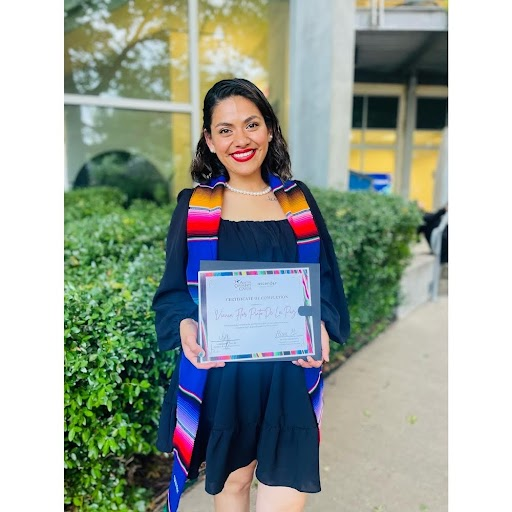
Meet Vianca Pinto, a Business Administration student.
“Ascender not only helped me make connections; it helped me burst out of my shell– not be afraid to talk, [and] not be afraid to be involved in different things,” says Vianaca. “It has helped me align. I now know I can do anything I want to.”
Vianca hopes ACC and all students will continue commemorating Hispanic tradition, culture, and achievements.
“I’m from Mexico, and I’ve been here since I was 11 years old. I forgot how we celebrate back home,” says Vianca. “I just feel really proud that I still get to do that here in another country. So I think it’s very important that ACC keeps doing that and [is] recognizing every culture.”
Jessica Silva
Jessica Silva (she/her) is a faculty librarian who started working at ACC in April 2023.
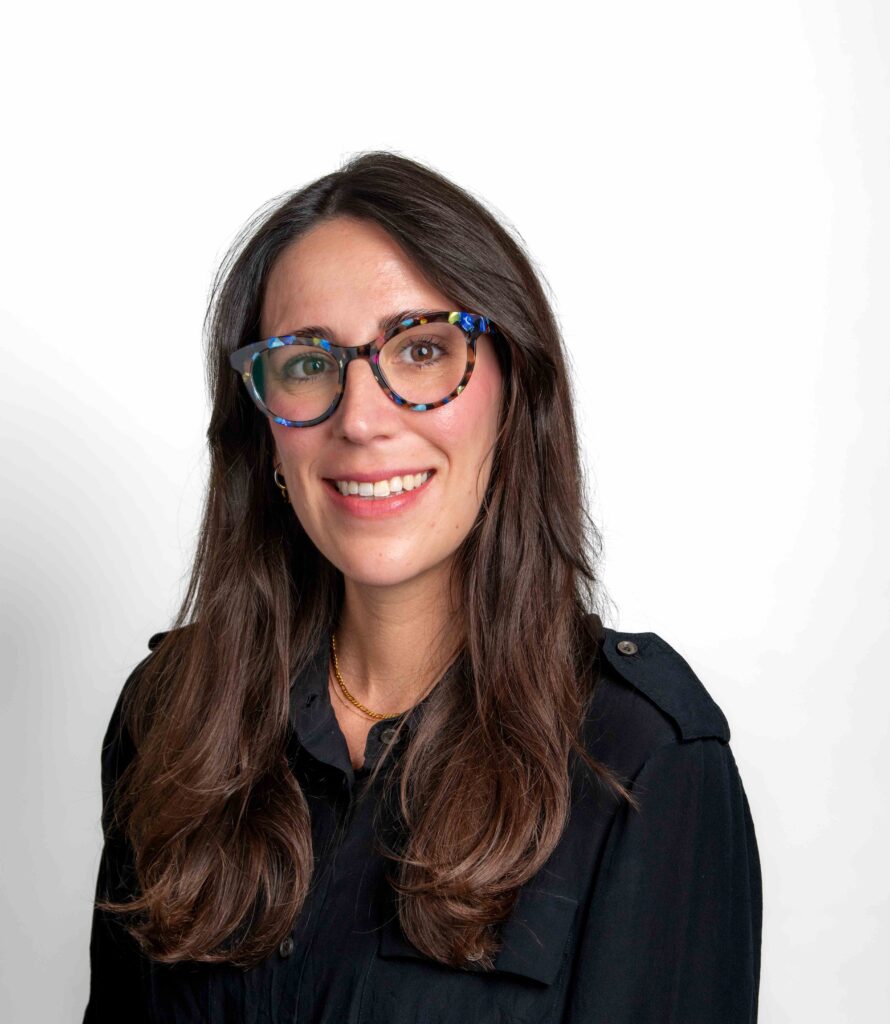
How do you identify with the Hispanic community?
I identify as Latinx. My Mexican heritage and my hometown of El Paso, Texas, are very important to me. My mom is Mexican-American and my dad is white. I grew up spending a lot of time with my maternal grandmother. She was born in California and raised in a convent in Coyoacan in Mexico City. At 15, she moved to Juárez, Chihuahua and then to El Paso. My grandmother, aunts, and uncles lived on the Chamizal in Rio Linda in the Segundo Barrio, right on the border between El Paso and Juárez on contested land. In 1963, the Chamizal Treaty was signed, returning the land — including the portion where my family lived — to Mexico. This displaced many families that lived in the neighborhood, redrawing the lines between countries. Today there is a museum in a national park on the Chamizal that tells the history of this story (you can read more about it here). To me, it is a reminder that borders are simply constructs, ni de aqui ni de alla, and what can come from the spaces between.
What is your favorite way to celebrate your heritage?
Practicing critical librarianship and thinking of the ways Latinx people and El Paso and the border are represented in media, books, and in the collection here at the library. Educating people about El Paso and the border, I try to promote El Paso authors and creators. It is important for people to learn more about it, because I think the media can sometimes create an unfavorable image of what El Paso or the border are like. Once I had someone from out of state ask me “what’s the significance of the bridge?,” not understanding that El Paso is a binational, bicultural, symbiotic city. Many people cross every day to go to work or school in Juárez or El Paso, and that is part of El Paso culture, the fluidity of the culture, even the language. Code-switching and speaking Spanglish. I love getting an opportunity to practice speaking more Spanish. I also love connecting with other people who are from the Valley or along the Texas border, because each place is the same but also has their own border idiosyncrasies.
What advice would you give to our Hispanic/Latinx students?
Culture is not monolithic, you’re not too much or not enough of any part of your culture, and it’s okay to be a “no sabo” kid! One time I said “dies y cuatro” — it happens! If you want to speak Spanish, the only way to learn is to practice. You’re going to make mistakes, and it might be momentarily embarrassing, but the important thing is to try and not to be perfect. Also, practicing inclusivity is vital and intersectionality is so important — ride as hard for other marginalized folx (folks) as you do for your own gente/culture.
Who or what is your biggest inspiration?
My grandmother. She stopped going to school at the age of 14 to move to Juárez for work. She was a cafeteria worker in El Paso and essentially raised six kids by herself, and each has been fortunate enough to obtain a college degree. The students I service are also a big inspiration for me. Anytime I’m able to help a student with research or learn to properly cite a source, I understand the impact. I am also immensely gratified whenever I can help students realize the utility of a space like the library as something more than a place to check out books and print.
What is your proudest achievement?
Being able to practice librarianship as a career. This is my 13th year working in libraries. I am also proud of the work that I was able to do in El Paso as a high school librarian and being able to work here at ACC in higher education and on the Library Services Equity, Diversity, and Inclusion (EDI) team. I also serve on the Texas Library Association EDI team. I am proud of taking up this space and showing others that they can also take up this space as well, because there is not a lot of Latinx representation in libraries and academic institutions can feel gatekept.
What books, movies, shows, etc. would you recommend people check out during Hispanic Heritage Month?
Music fans should check out the new Mars Volta documentary — they’re an awesome bilingual band from El Paso. For filmgoers, I encourage you to watch the new movie “Aristotle and Dante Discover the Secrets of the Universe,” readers should explore the works of Benjamin Alire Saenz, Alessandra Narvaez Varela, Yasmin Ramirez, Sylvia Zeleny; and check out Raul the Third, Zeke Pena, and Graciela Iturbide’s art. Visit El Paso, visit the border, know that so much of history is embedded in Indigenous tradition and practices; history began long before European colonization.
More profiles coming soon.
Nominate a colleague you think we should interview for the ACC Talks Hispanic Heritage Month series here.

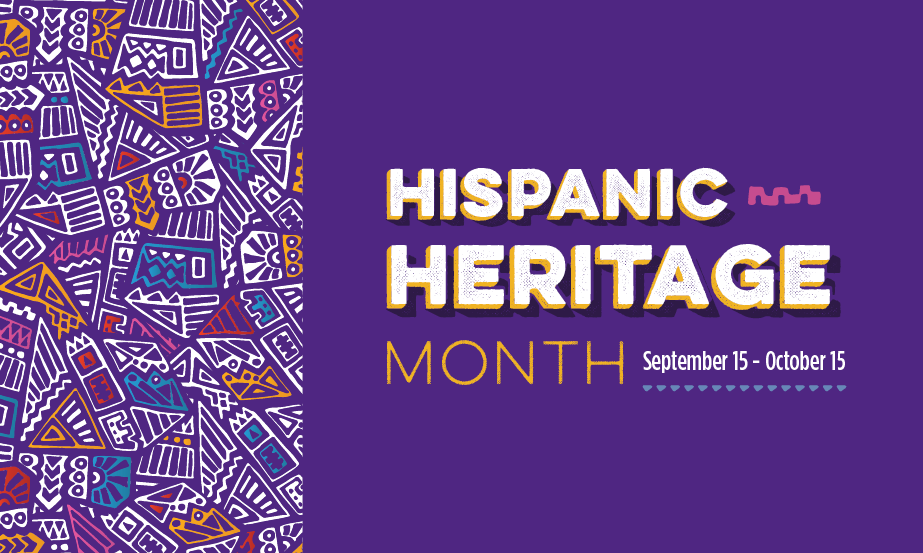
Yeah! What a wonderful interview, I also read this whole article and it is a really interesting story and history-thank you!
https://elpasonews.org/2020/09/12/rio-lindaa-community-of-the-chamizal-forever/
Excited for ACC Talks Hispanic Heritage Month 2023! Looking forward to celebrating and embracing the rich cultural diversity in our community.
Outstanding! interview forgot to talk about, Viva! El Paso is annually musical which celebrates El Paso’s cultural history through dance, drama,
narration and songs. The musical play is performed against the backdrop of Mckellion Canyon amphitheater.
El Paso, was recognize in 1598 by Juan de Onate, colonizer of New Mexico, who called it El Paso del Norte (Spanish: The Pass of the North:)